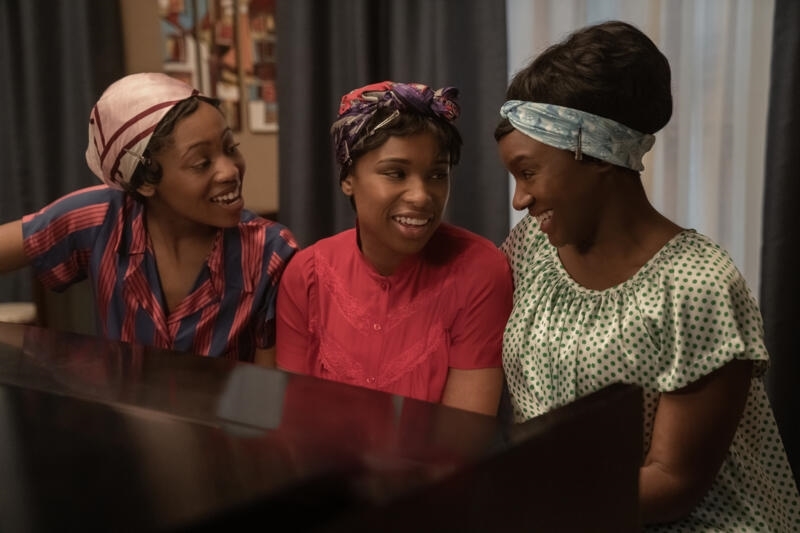
How is it possible to represent the life of someone who regaled crowds with her incredible musical talents from childhood through her seventies in just a few hours?
Aretha Franklin is a national icon whose influence on the American music industry is undeniable. She was already the subject of the third season of National Geographic’s anthology series Genius, which aired eight hour-long installments about the Queen of Soul, played by Cynthia Erivo, and now she’s featured in a standard biopic that’s all but guaranteed to win star Jennifer Hudson her second Academy Award: Respect.
This film introduces Aretha at a young age (Skye Dakota Turner) being woken by her reverend father C.L. Franklin (Forest Whitaker) to serenade a group of guests with her phenomenal voice. Her warm relationship with her frequently-absent mother (Audra McDonald) and her death early on in Aretha’s life are shown in contrast to the way in which C.L. sought to manage her career and guide it in the direction he thought best. The film tracks how his grip on her every professional move was replaced by that of her first husband, Ted White (Marlon Wayans), before she was eventually able to make a voice for herself and become a true legend.
This film follows a very typical structure in how it continuously connects the way that Aretha behaved as an adult with how she was brought up and the formative experiences that stuck with her for years. Two pregnancies, the first at age twelve, are implied to be the product of sexual assault by an adult, and the struggles with alcoholism that Aretha later faced are referred to as her “demons,” something that C.
L. believed he could exorcise and which are only truly dealt with once Aretha is able to speak on her own and take charge of a career that was long squandered by men who thought they knew better.

The top reason to see this film is, unsurprisingly, star Jennifer Hudson. The actress made her film debut fifteen years ago as Effie White in Dreamgirls, which won her the Oscar for Best Supporting Actress. Hudson, who has been acting somewhat consistently in the interim, is back in full force embodying Aretha, channeling her not just through music but also a passion for self-expression, something that proves difficult when those with more power in society, whether it’s due to their gender or the color of their skin, try to talk over her. In every scene, Hudson is formidable and demands to be heard, and there’s no denying the show-stopping nature of the several full song performances she does deliver that will surely be played over and over come awards season.
What surrounds Hudson is indeed competent, with compelling turns from Wayans and especially from Hailey Kilgore and Saycon Sengbloh, who play Aretha’s sisters, and Kimberly Scott, who portrays her loving grandmother. Yet the way the film is put together feels exceedingly familiar, following a standard blueprint that has served as the roadmap for many biographical films. Some audiences may find that structure comforting and easy to follow, but this finished product, which runs a lengthy two hours and twenty-five minutes, doesn’t feel like the greatest possible showcase of its subject matter.
In all that time, it manages only to highlight a short span of years, mostly between 1959 and 1972, leaving a large chunk of her amazing life unexplored. A number of closing notes scrawled over the film’s final scene indicate the wealth of material not covered in this film, suggesting that, especially given the talent of its lead star, might have been better incorporated for a more creative, resounding result.
Grade: B-
Respect opens in theaters on Friday, August 13th.

